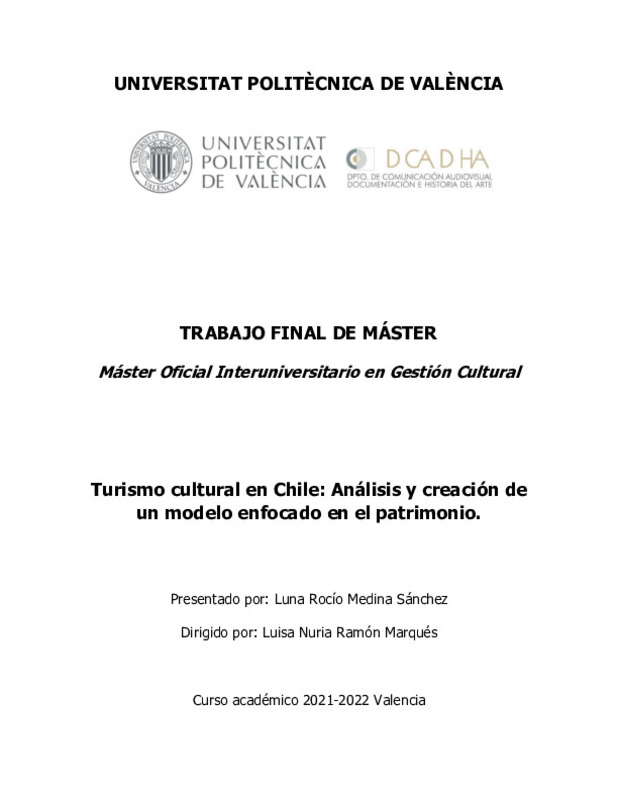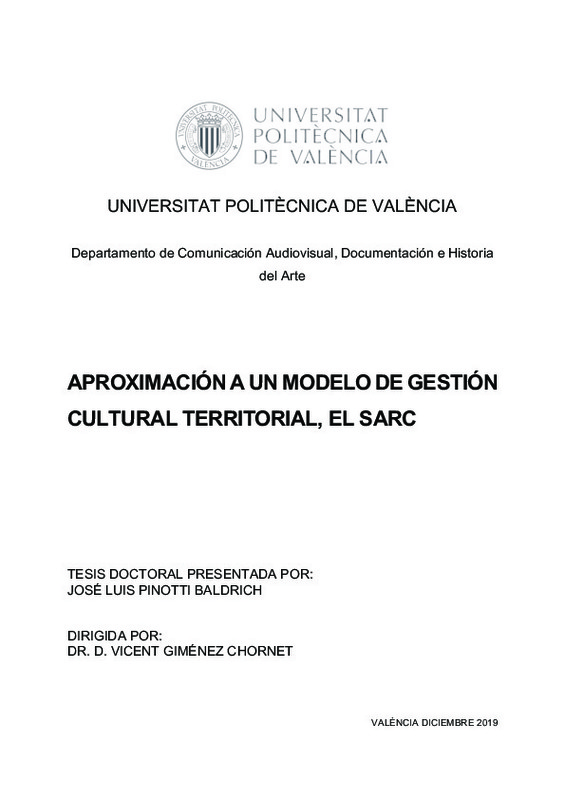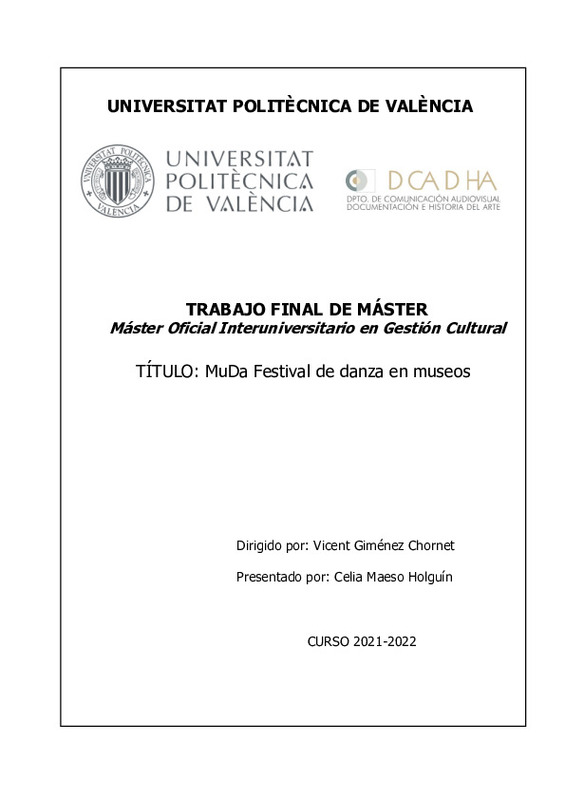|
Resumen:
|
[ES] El siguiente trabajo busca ser un instrumento útil para la creación de un turismo
cultural en Chile sólido, responsable y sostenible. Para este cometido se toma en
consideración la imagen actual del turismo nacional ...[+]
[ES] El siguiente trabajo busca ser un instrumento útil para la creación de un turismo
cultural en Chile sólido, responsable y sostenible. Para este cometido se toma en
consideración la imagen actual del turismo nacional (en donde destaca el turismo
natural), la imagen de proyección nacional e internacional dada desde las
instituciones turísticas estatales al turista, los actuales parámetros de recopilación
de información turística en espacios culturales y la difusión a nivel educativo en base
a la protección de los productos turísticos, y la importancia dada al patrimonio
inmaterial. Mediante el análisis de estos puntos se evalúan diferentes alternativas
que busquen dar valor al patrimonio cultural chileno, principalmente de carácter
inmaterial.
Los resultados obtenidos de este análisis muestran una imagen publicitaria desligada
del contexto nacional, un sistema de recopilación deficiente a la hora de analizar los
públicos, sumado al poco énfasis dado al patrimonio inmaterial. Se plantea a partir
de esto la importancia de la creación de un turismo cultural que de importancia a
la interacción con las comunidades que ceden sus espacios al uso del turista y los
beneficios que este tipo de turismo puede traer a las comunidades, la importancia
en la creación de una medición de público en los espacios culturales que entregue
información efectiva para el desarrollo de públicos, la puesta en valor del patrimonio
alimentario y, su carácter procesual para la instauración de este como un bien
cultural y la puesta en curso de un turismo sostenible que trabaje con las
comunidades a partir de los pilares sociales (multiculturalidad, interacción,
protección, respeto, dialogo), económicos (creación de puestos de empleo, dar valor
al trabajo artesanal) y ambientales (respeto por la cosmovisión de los pueblos,
protección del medio como germen del producto)
[-]
[EN] The following work seeks to be a useful instrument for the creation of a solid, responsible and sustainable cultural tourism in Chile.For this task, the current image of national tourism is taken into consideration ...[+]
[EN] The following work seeks to be a useful instrument for the creation of a solid, responsible and sustainable cultural tourism in Chile.For this task, the current image of national tourism is taken into consideration (where natural tourism stands out), the image of national and international projection given from the state tourist institutions to the tourist, the current parameters of tourist information collection in cultural spaces and dissemination at the educational level based on the protection of tourism products, and the importance given to intangible heritage. Through the analysis of these points, different alternatives that seek to give value to the Chilean cultural heritage are evaluated, mainly of an immaterial. The results obtained from this analysis show an advertising image detached from the national context, a deficient collection system at the time of analyzing the audiences, added to the little emphasis given to intangible heritage. The importance of the creation of a cultural tourism that gives importance to the interaction with the communities that yield their spaces to the use of the tourist and the benefits that this type of tourism can bring to the communities, the importance in the creation of a measurement of public in the cultural spaces that delivers effective information for the development of public, the putting in value of the food patrimony and, its procedural character for the establishment of this as a cultural asset and the implementation of a sustainable tourism that works with communities from the social pillars (multiculturalism, interaction, protection, respect, dialogue), economic (job creation, giving value to craft work) and environmental (respect for the cosmovision of peoples, protection of the environment as a germ of the product).
[-]
|










